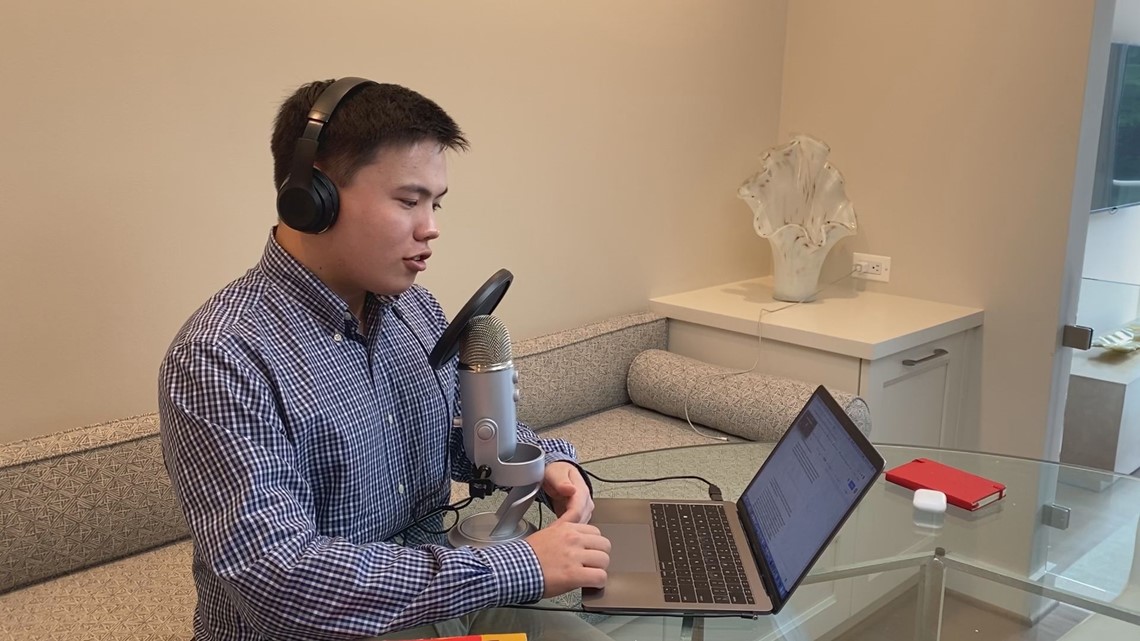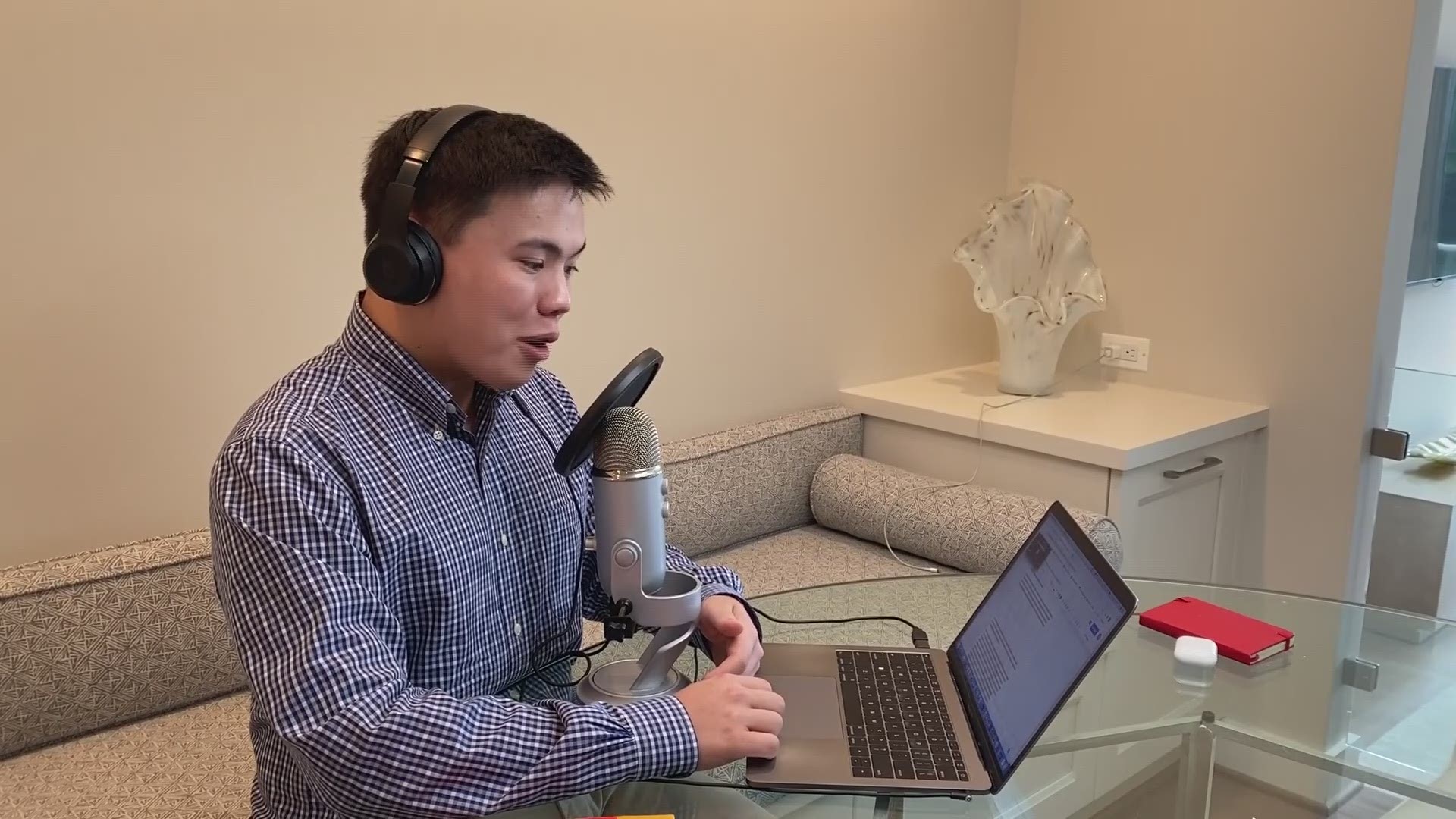FAIRFAX COUNTY, Va. — Many students graduate high school without ever taking a financial literacy or economics course. One Fairfax County senior wants to change that by teaching students to handle money wisely.
Whitman Ochiai is a rising senior at Thomas Jefferson High School in Fairfax County. He started the MoneyEdPodcast almost two years ago after seeing the impact of the government shutdown.
"I started thinking, 'What can I do to improve financial literacy?' I thought, well a lot of people these days are listening to podcasts," said Ochiai.
The 17-year-old is passionate about saving money and helping other students do the same.
"A lot of what I first learned about financial literacy, I learned from my parents. I think that’s very important for families to teach their kids financial literacy, but one thing that struck me is the fact that I did not have a single financial literacy class until high school," said Ochiai.
His free podcast is geared toward other students and covers everything from taxes to credit card spending and how to save for retirement.
"Now that we have the pandemic going on, it’s become painfully clear that financial literacy is incredibly important. Particularly, it is important to have an emergency fund and put money away in case of stuff like this," said Ochiai.
RELATED: Montgomery County Public Schools will have all-virtual curriculum until at least January 2021
"The biggest piece of advice for people listening to my podcast is to save now and save early. When I say saving, I don't just mean putting it in a piggy bank, but in an index fund or something that gives money over time," said Ochiai.
Now, Ochiai said he is putting money aside for college. He hopes to graduate college with less than $10,000 of student debt.
"No matter how many or how few people listen to the podcast, as long as at least some of them take the advice to heart, gain that financial literacy knowledge, it’s worth it. The fact that people are saying they’ve learned new stuff from the podcast, or that it’s got them thinking about their finances, that’s the best thing I could’ve hoped for," said Ochiai.
To listen to the MoneyEdPodcast, click here.



